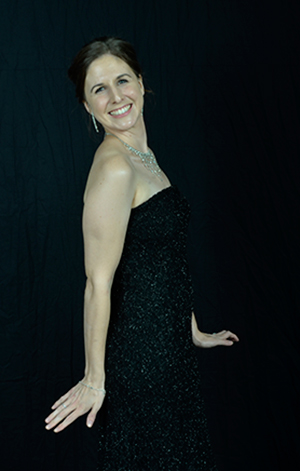
The largest provider of business education in Africa and one of the largest in the world

Dr Catherine le Roux
A doctorate is "one big all-or-nothing game" and, until she finally had her results, there was no resting for Dr Catherine le Roux, Unisa’s youngest female PhD graduate of 2018.
"With a doctorate, there are no small wins. You have nothing until it is over and you get your results. That is why doing a doctorate can’t be for anyone but yourself," says Le Roux, Senior Lecturer in Strategic Management at the Department of Business Management.
Having completed her doctorate at the age of 30, she received the award for the Youngest Female PhD graduate at Unisa’s Research & Innovation awards ceremony on 8 March this year.
Winning that award was not in her sights when she embarked on her doctoral studies in 2014, exploring the embeddedness of sustainability in management decision-making.
"I started with this topic in my master’s, which is when I found my love for research and the topic," says Le Roux. "For me, it’s the type of research I do - which is qualitative - and the people aspect that I enjoy, engaging with companies and corporations in face-to-face, in-depth interviews."
Her research has a larger purpose than self-fulfilment, however. "I feel I can make a difference," she says. Not only are her research findings potentially transferable to other companies, but the research played a role in helping to shape the sustainability approach of the corporation she focused on, Growthpoint Properties.
"It was an amazing journey," says Le Roux, who started her research journey with Growthpoint in 2011 and finally finished it in 2018. "The work was exhaustively detailed and there were many, many hours of interviews, workshops and various other engagements. Researchers often struggle to get access to organisations, but this one has a very transparent culture. They were even open to discussing what wasn’t working."
Le Roux, intent on exploring the finest detail of sustainability embeddedness in Growthpoint, saw how its approach to sustainability evolved over the years.
Its use of language embodied this shift. In the beginning, the language at the company was very much typical public relations speak, with references to popular sustainability terms such as "green", "saving electricity" and "water saving". As time went by, and Le Roux provided feedback from her observations, the company’s language changed. "The way they spoke about sustainability became more about long-term growth and resilience and they began seeing sustainability as part of who they are," she says.
The company also shifted from seeing sustainability as the responsibility of one particular unit or person to a much broader view. "At the end of the research, I saw that sustainability was everyone’s job. It was embedded."
While Le Roux thrived on the work, it was also "by far the hardest thing I have ever done. It is so difficult to operate at the level required for doctorateness," she says. "When you run and get tired, you’ve got to push on. This is mental fitness. When my mind felt like it had reached its threshold and capacity, I would challenge it to go further. I told my mind to 'find the answer' and to 'figure this out'. It took focus and commitment but I grew a lot throughout the process."
A few things kept her going. One was the support of her supervisor, Prof Marius Pretorius of the University of Pretoria. "You need a good supervisor to push you in the areas you are not good at. I’m a detail person; he sees the bigger picture. He stopped me from going too far and making things too complicated, and kept me focused." Le Roux also credits her family, friends and colleagues for the support they offered on this doctorate journey.
The other major boost was being on Unisa’s Academic Qualifications Improvement Programme (AQIP). "There is a debate about whether postgraduate students should be working and doing a doctorate. I felt that I needed to focus on my studies full time. It was a privilege to have had the dedicated time to do single-tasking and to not be interrupted. That is when you can do deep thinking and the continuity you get is so special," Le Roux says, adding that she used "every minute of those three years. I grew in self-discipline. I have proved to myself that I can work autonomously and deliver high-quality research."
She also delivered a "thesis baby", Kaitlyn, in the final year of her thesis, when the end goal was in sight. Le Roux graduated in September 2018 and was back at work in October 2018, after her maternity leave. "It’s been quite a transition being back full time, but I am grateful to be back with my colleagues and to be teaching my postgraduate students again."
* By Clairwyn van der Merwe, Contract writer, Directorate of Research Support
Publish date: 2019-03-28 00:00:00.0